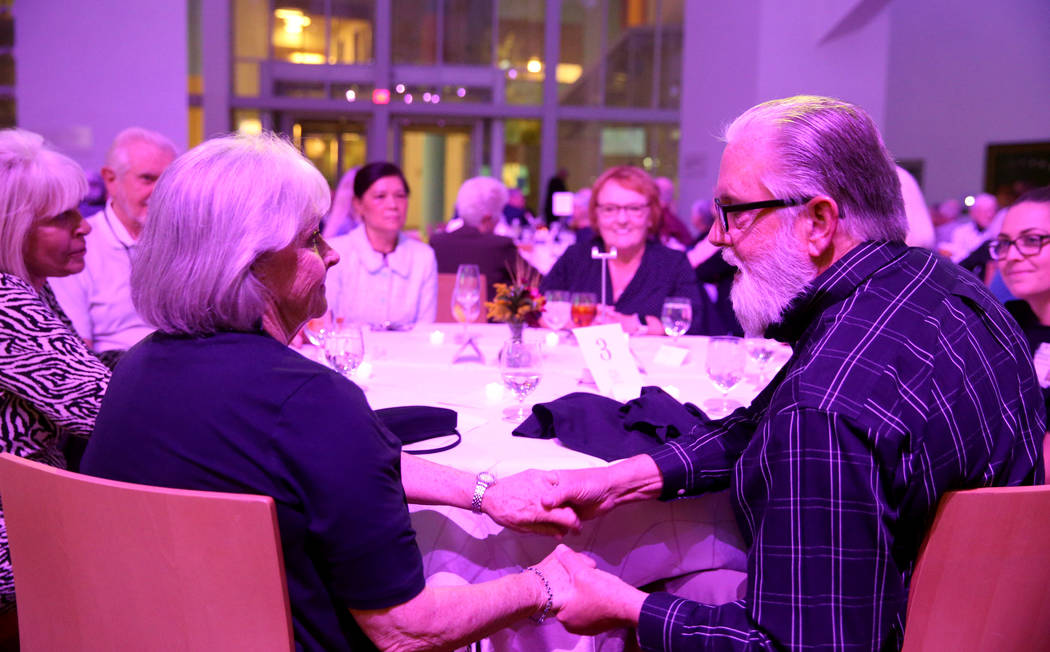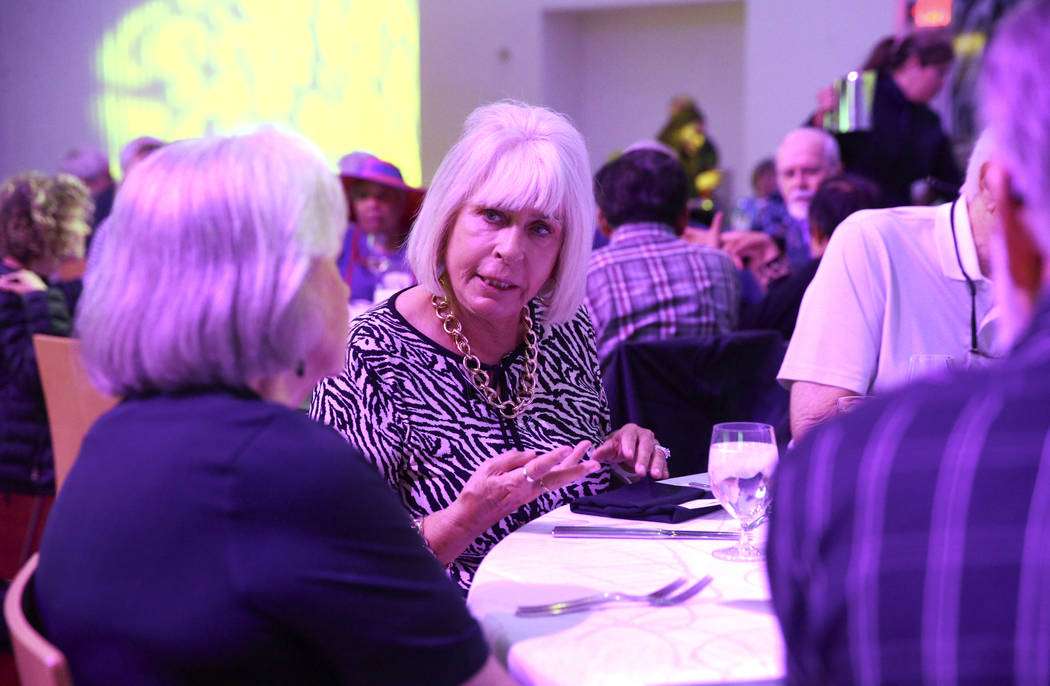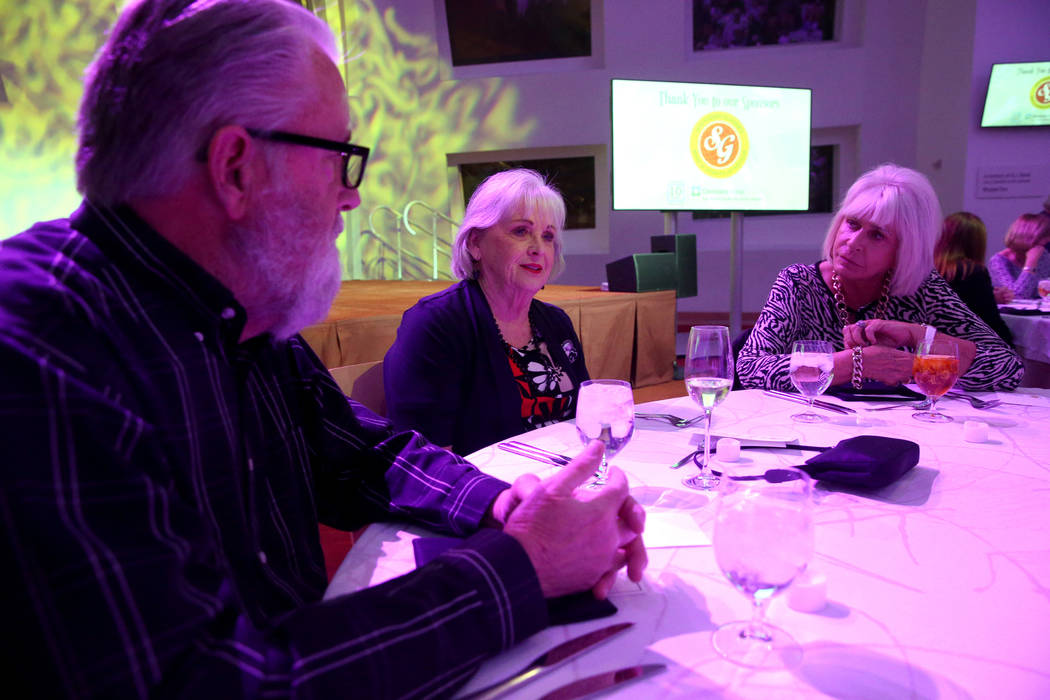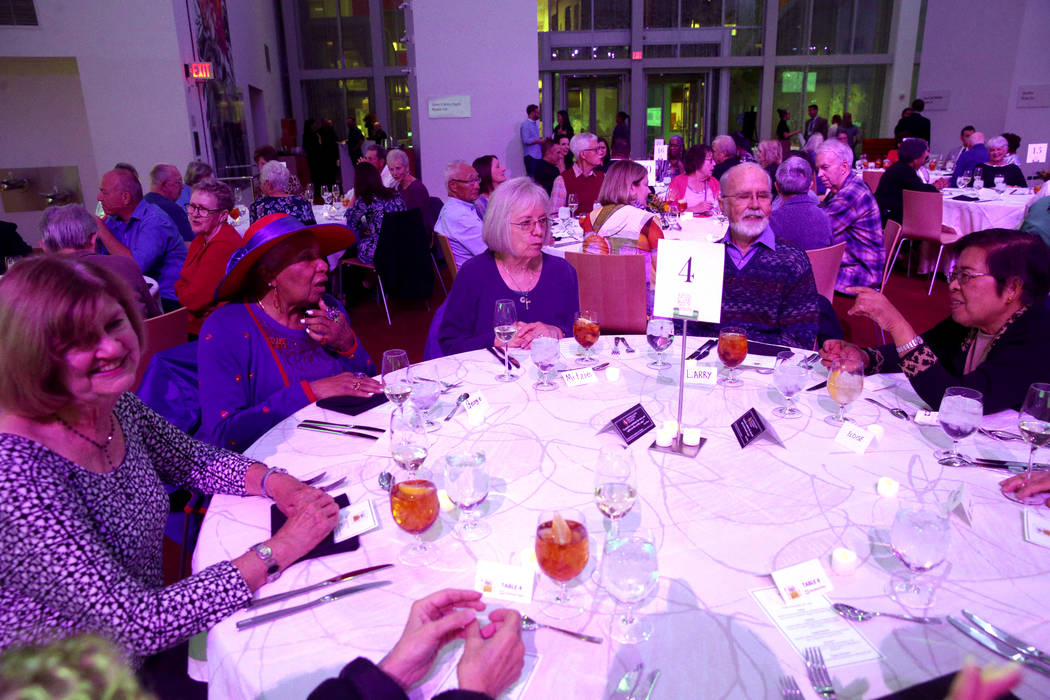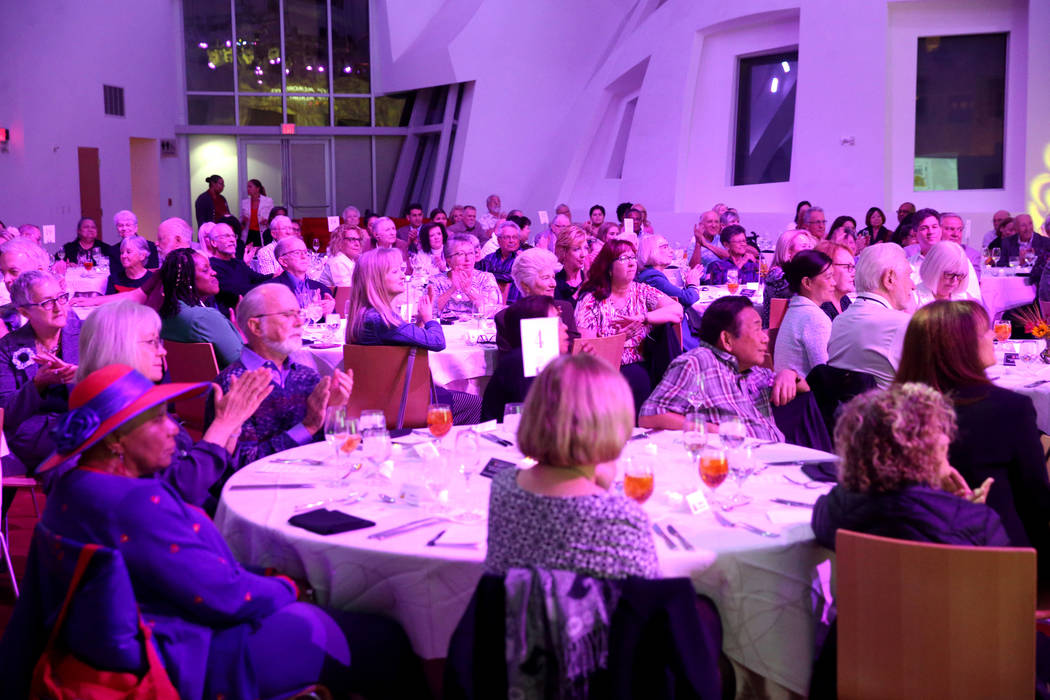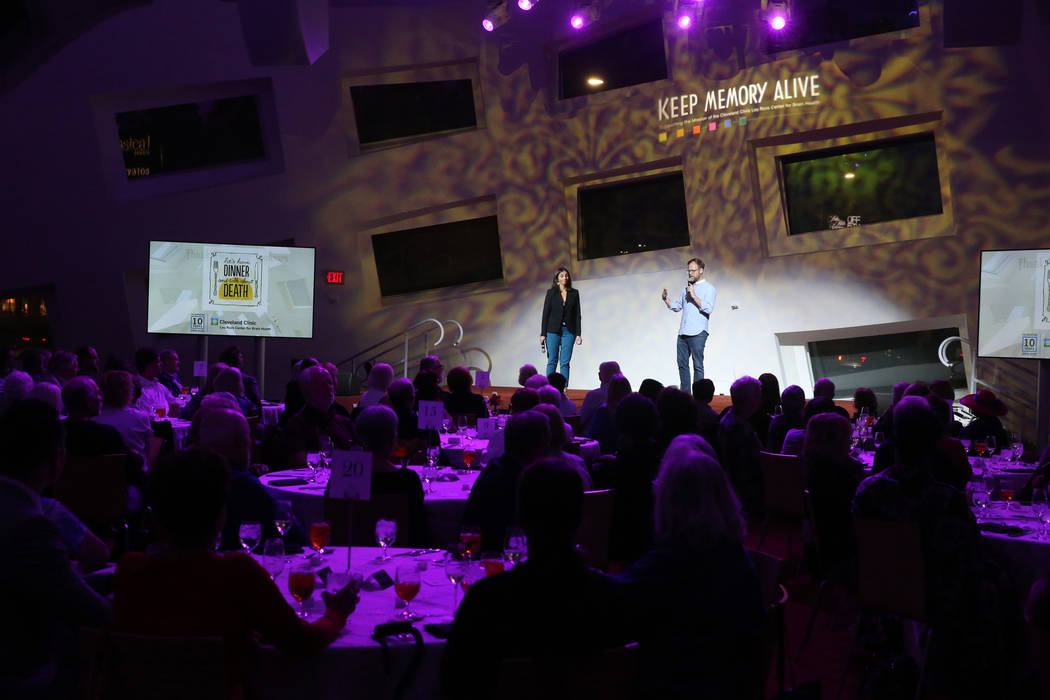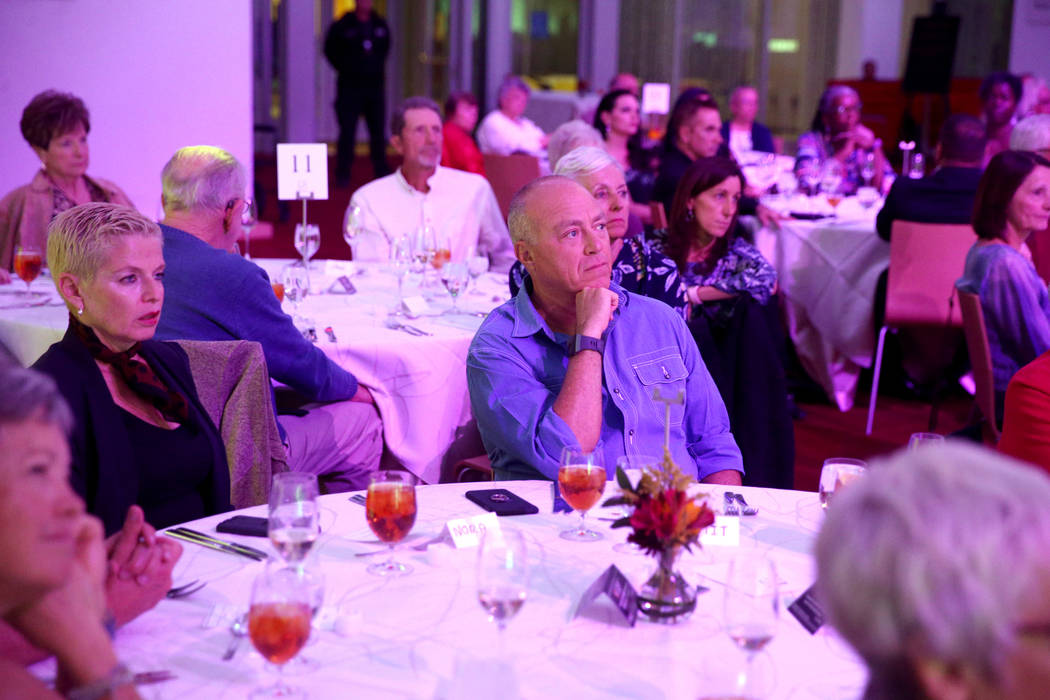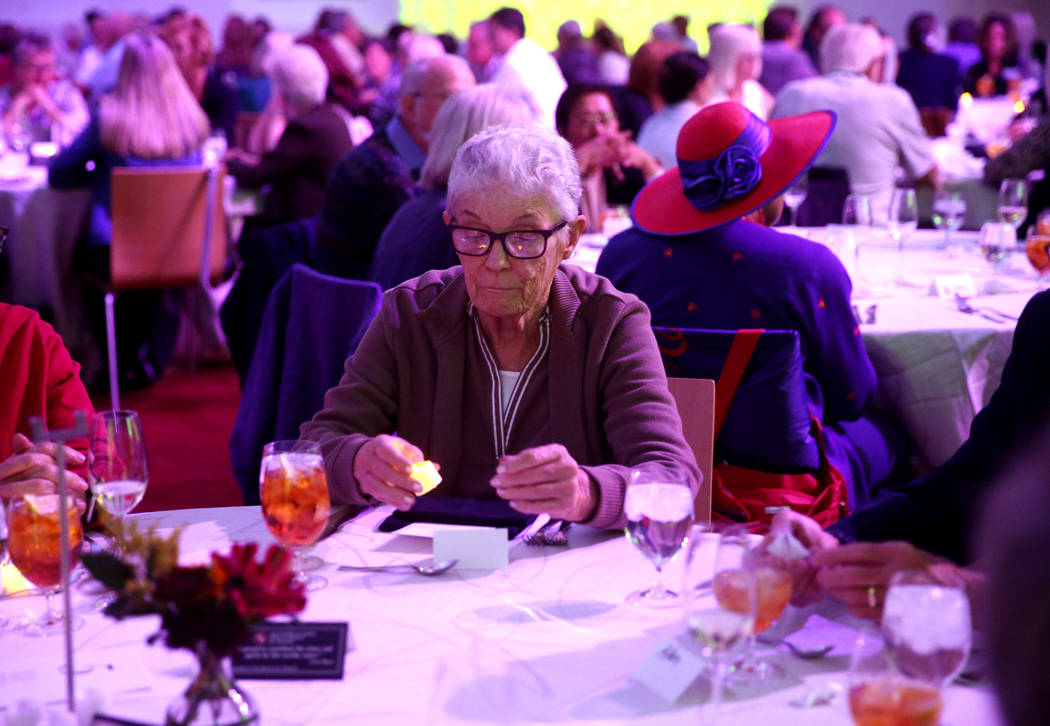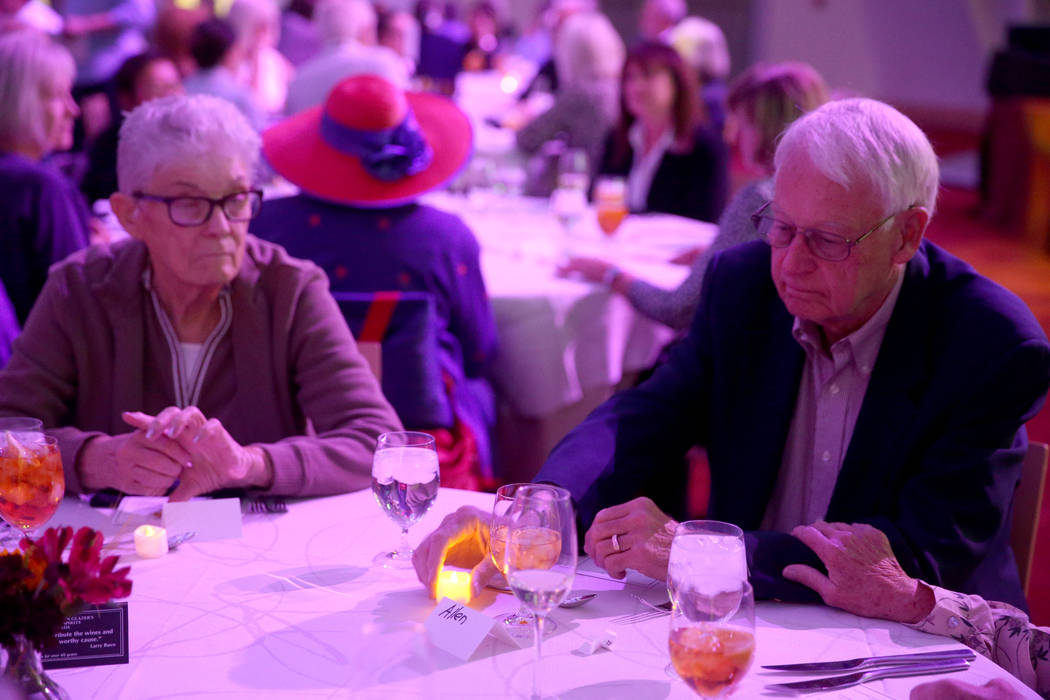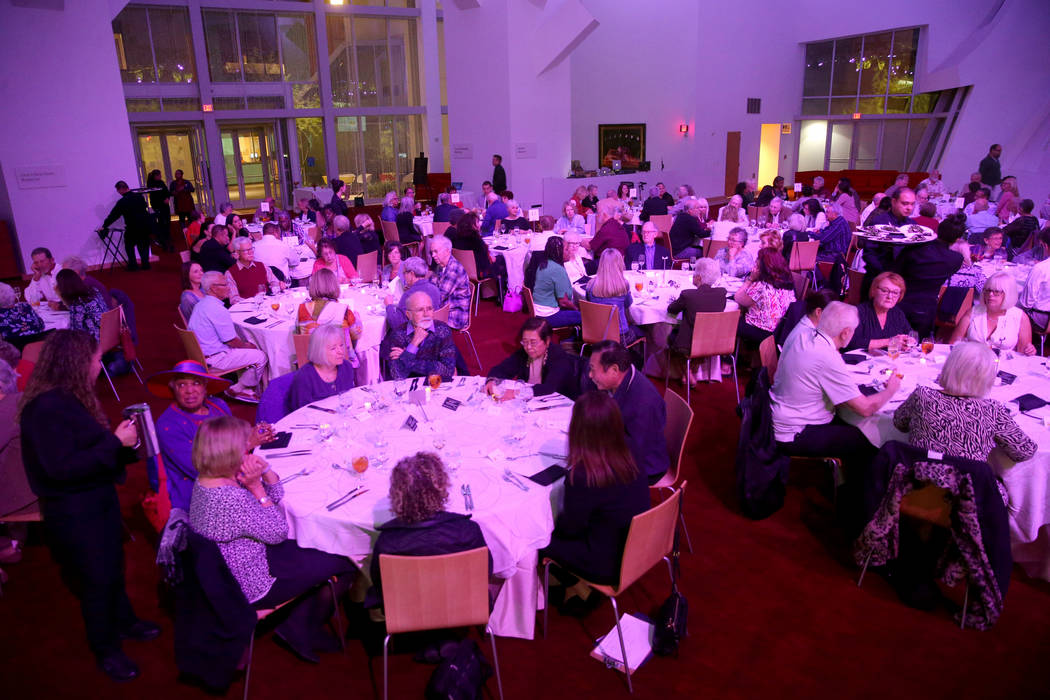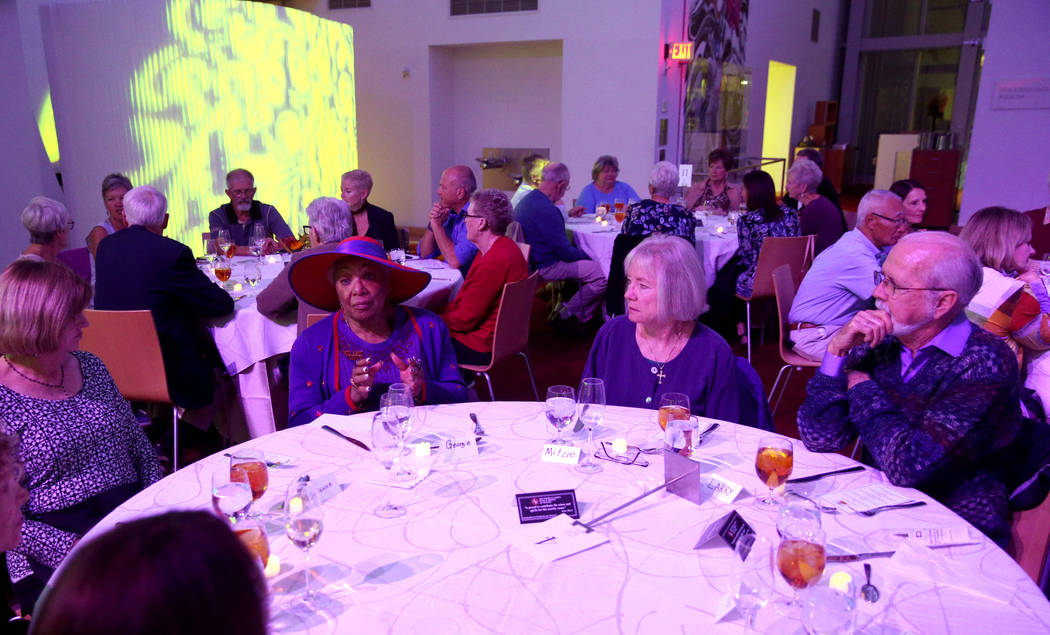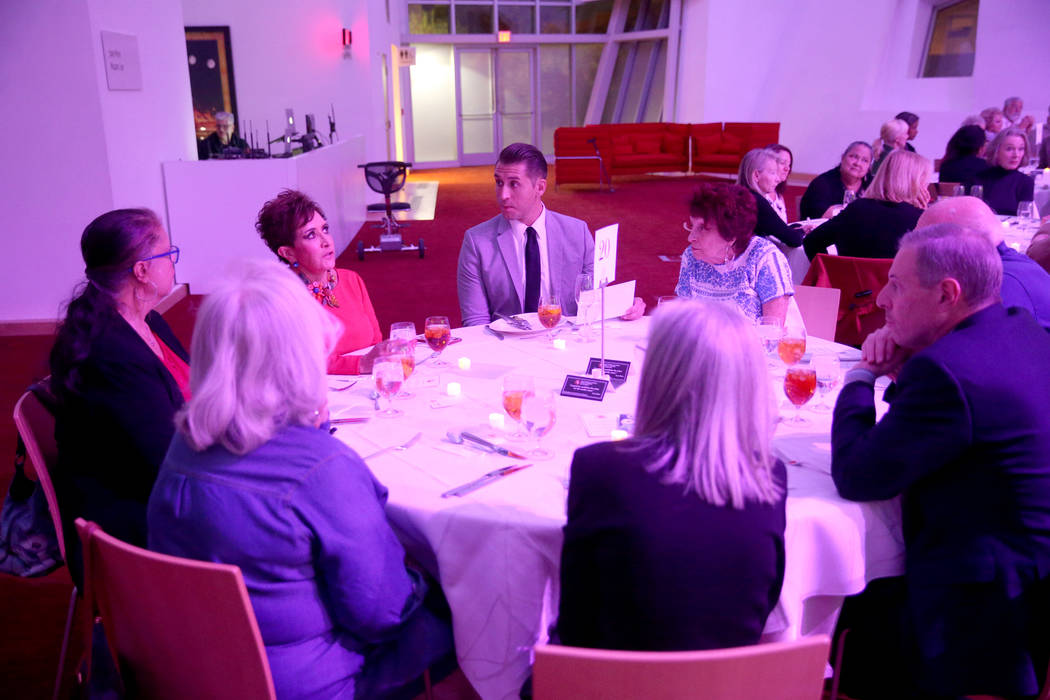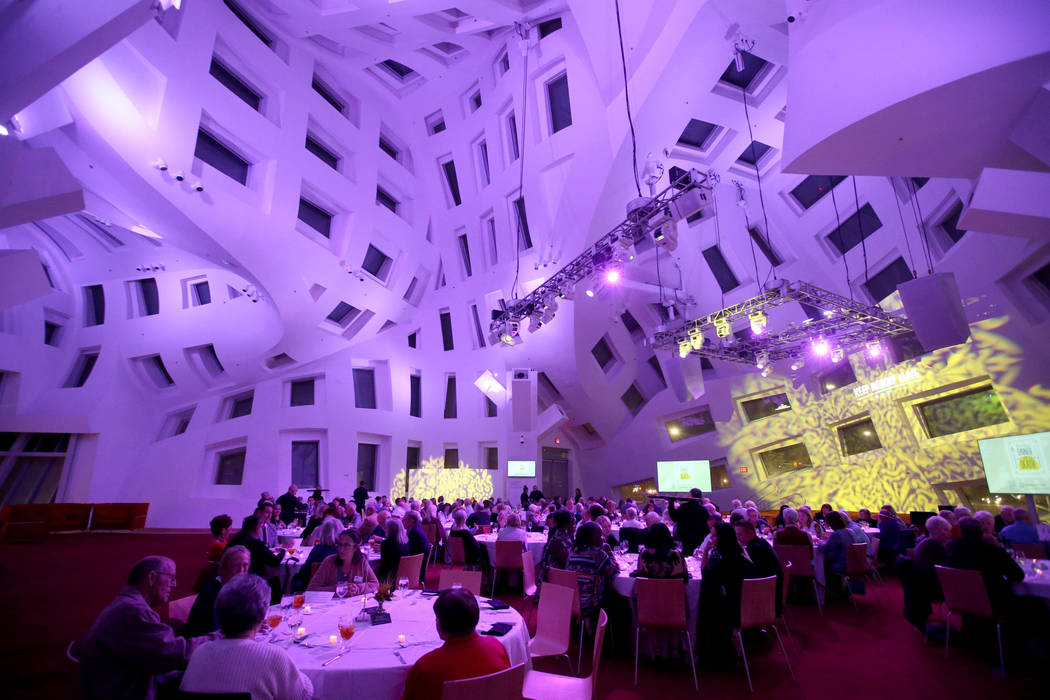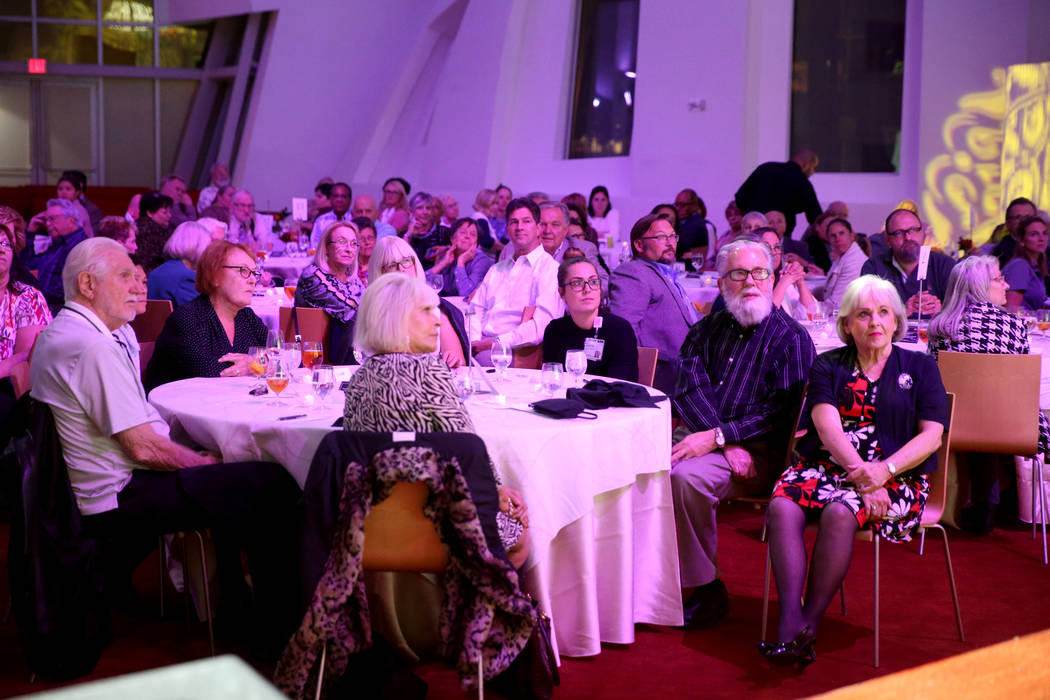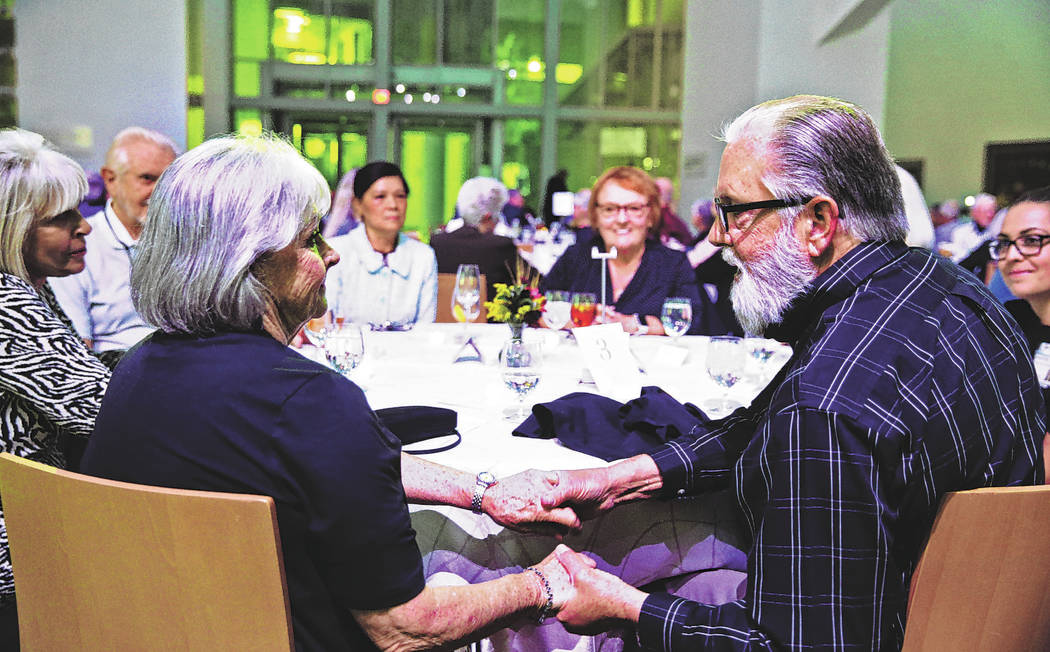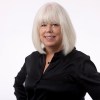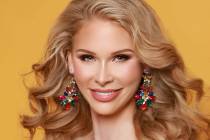‘Death Over Dinner’ brings up the most important conversation nobody’s having
At age 83, Dr. Mia Ha’s mother simply keeled over one morning at breakfast.
This was a “good death” — fast, painless, at home — Ha told the seven strangers who were her dinner companions on a recent Friday night.
But death often is none of those things. Ruth Motta told Ha and the others seated at their table that the final stage of her father’s life was shrouded in mystery. Growing up, she wasn’t told that he had Alzheimer’s disease, and learned of the diagnosis only after his death when she sneaked a peek at his medical chart.
Ha and Motta shared these details during the world debut in Las Vegas of “Death Over Dinner — Alzheimer’s Edition” at the Cleveland Clinic Lou Ruvo Center for Brain Health. Over grilled airline chicken breast and roasted purple potatoes au gratin, 175 people, many with a connection to Alzheimer’s disease, tackled an unlikely dinner-table topic: death.
Despite the taboo, “Death Over Dinner” founder Michael Hebb, who hosted the dinner with the Cleveland Clinic’s Dr. Silvia Perez-Protto, said people are eager to discuss death.
So why don’t they?
The opportunities to have these conversations typically are “not very inviting,” Hebb said in an interview. “They’re all stick and no carrot,” like a request to fill out an advance directive to avoid unwanted end-of-life medical treatment. Important, but hardly inviting.
“We need to design better opportunities, more meaningful reasons, to connect around the fact that we are mortal, that we are going to have a last chapter, that we are going to die,” said Hebb, whose own father died of Alzheimer’s. And where better to have meaningful conversation than the dinner table?
“The dinner table is the most forgiving place for difficult conversation,” according to the “Death Over Dinner” website. “The ritual of breaking bread creates warmth and connection, and puts us in touch with our humanity.”
At the Ruvo Center event on Nov. 8, guests seated at tables for eight were given questions to shape their conversations: What songs would you like played at your memorial, and by whom, if it could be anyone? How would you feel, and what plans would you set into motion, if you were diagnosed with early-onset Alzheimer’s disease?
“We suffer more when we don’t communicate our wishes,” the “Death Over Dinner” website states. “We suffer less when we know how to honor the wishes of our loved ones.”
At Ha and Motta’s table, the questions triggered laughter as well as reflection. Paula Anderson, who attended the dinner with her husband, Bob, said she’d like religious hymns at her funeral and Bob Seger playing “Old Time Rock and Roll” at her wake.
At the close of the evening, Anderson, whose father had Alzheimer’s and who founded a dementia education and support nonprofit, hugged her dinner companions and told them, “To have a deep conversation with a group of strangers is really special.”
With these conversations, “There’s a profound connection created quite quickly,” Hebb said. “Being seen, being listened to, laughing, these are things that are rare in our digital economy.”
“Death Over Dinner” launched in 2013, following a random conversation Hebb had on a train with a pair of doctors, who told him that the “most broken thing about our health care system is the way we die.” They also told him that though three-quarters of Americans say they want to die at home, only one quarter do.
Since 2013, the nonprofit has facilitated 200,000 dinners across the globe for an estimated 1 million guests. And Hebb is not proprietary about the concept. The movement is “decentralized and people have made it their own,” spawning Death Over Donuts, Death Over Cocktails and Death Over Deli events. The events are “however anyone wants to use this gift we’ve given.”
Hebb speaks of a “gentle revolution,” a “reclaiming of something that’s meant to be ours.”
“Our death is something that we own but we’ve given over to circumstances and the medical apparatus, especially if we don’t have these conversations,” he said.
The conversations compel introspection not only about the end of life but also what the years and decades before death might look like. Consider this conversation prompt: “What would you want people to say at your funeral? What do you want to be remembered for?”
Hebb said his organization could more accurately be called, “Life Over Dinner.” But “death,” he said, “gets your attention.”
Contact Mary Hynes at mhynes@reviewjournal.com or 702-383-0336. Follow @MaryHynes1 on Twitter.
Program available
Want to host a "Death Over Dinner" event? The Alzheimer's module developed for the Nov. 8 dinner at the Cleveland Clinic Lou Ruvo Center for Brain Health is available at no cost at deathoverdinner.org.



